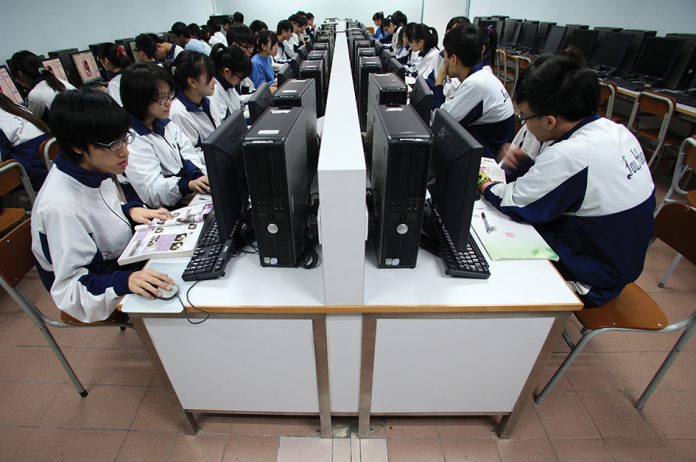The Government is already working on a successor to the Youth Policy (2012-2020). In the second half of this year there should be news. But the assessment that has already been made is quite positive.
MB April 2020 Special Report | Youngsters living on a keyboard
And after this “Macau Youth Policy (2012-2020)”?
As is public, the validity ends this year. But the Education and Youth Affairs Bureau (DSEJ) is working on a new document.
In 2019, the SAR Government carried out related work on a new round of youth policies in “an orderly manner, which include entrusting the Institute for Sustainable Development of Macau University of Science and Technology (MUST) to evaluate the effectiveness of the current policies,” DSEJ told Macau Business.
At the same time, MUST experts were challenged to “continue to hold policy consultations, interviews and exchange meetings and listening to the opinions and advice” from the Youth Affairs Committee, members of the Youth Policy Task Force and the Youth Policy Cross-Department as Follow-up Team, representatives from different youth associations and what DSEJ call “relevant people from the society.”
All those experts and scholars (from mainland China, Macau and Hong Kong) must form a consultant team “to make suggestions for the future planning,” added DSEJ.
According to this same source, the consultation paper of a new round of medium and long-term planning for youth policies is expected to be available in the second half of this year and DSEJ will conduct public consultation at that time.
In addition to the work of the MUST specialists, there is the mid-term report (2016), entrusted to the Center for Studies of Hong Kong, Macau and Pearl River Delta of Sun Yat-Sen University in Zhongshan.
“Young people are the future and hope of society, and they are an important part of the efficient long-term mechanism for talent training and the Macau SAR Government attaches great importance to youth growth and development. With the attention, effort and the support of various social sectors and extensive public consultations, this updated version of the Macau Youth Policy has been prepared and is now published” – former Secretary Cheong U.

“Both reports proved that the policies have achieved quite effective results,” stated DSEJ to Macau Business. “One report even pointed out that the policy coverage was basically consistent with the policy directions of different nations and regions, which was in line with international standards and embodied Macau’s local characteristics.”
At the same time, by comparing and analysing the youth index to observe youth development, “it is believed that youth’s willingness to social participation continues to increase. They have good physical and mental conditions, less deviant behaviours and a strong sense of family. It also shows that they have a strong interest in exchange activities and are positive towards integrating into regional development,” answered DSEJ.
It is no wonder, therefore, that the Government of Macau makes a very positive assessment of the work done in these almost 8 years. “In terms of the implementation process, cross-departmental follow-up teams work closely to effectively allocate resources and effectively implement various action plans which have achieved good results.”
“In general, Macau youth policies have earned recognition from all walks of life,” concluded DSEJ.
75 per cent did not agree with the “casual sex”
DSEJ has been conducting the “Social Study of Youth Indicators in Macau” every two years since 2004. The objective is to know, globally, the situation of young people and to assess “the efficiency of the implementation of the Macau Youth Policy (2012-2020).”
Some curious data about the study carried out in 2018, covering young people aged between 13 and 29 years:
- The young people interviewed said they slept, on average, 7 hours a day.
- 19.7 per cent said sleep quality was poor.
- 21.7 per cent said they consumed alcoholic beverages.
- Cantonese proved to be the most widely spoken language among young people, representing 96.5 per cent, followed by Mandarin, 96.1 per cent, English, 79.5 per cent and Portuguese, 9.4 per cent
- 65.2 per cent of young people interviewed expressed concern about air quality, with regard to the issue of environmental protection.
- Of the young people interviewed, 66 per cent agreed with the idea of “respect for the national flag and anthem to be a basic attitude of the citizen.”
- 75 per cent did not agree with “casual sex” and “simultaneously having more than one sexual partner” behaviours.
- 11.7 per cent of the young people interviewed participated in games of chance, a decrease compared to 2016.
(These and other results are available in a document published on the DSEJ website.)
























